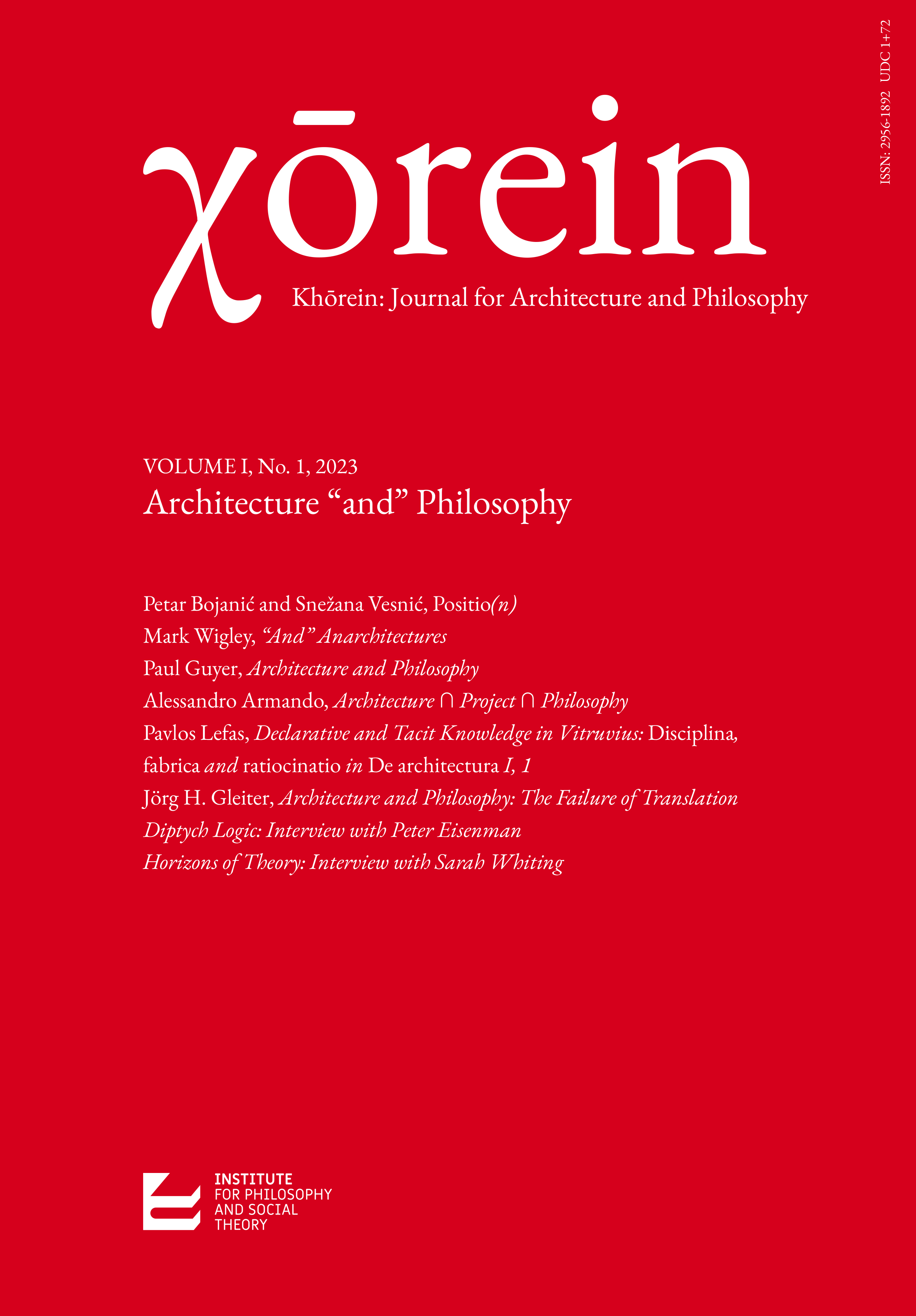Declarative and Tacit Knowledge in Vitruvius: Disciplina, fabrica and ratiocinatio in De architectura I, 1
Declarative and Tacit Knowledge in Vitruvius: Disciplina, fabrica and ratiocinatio in De architectura I, 1
Author(s): Pavlos LefasSubject(s): Philosophy, Architecture
Published by: Institut za filozofiju i društvenu teoriju
Keywords: Vitruvius; craft; manual skills; reasoning; abstraction
Summary/Abstract: In the opening chapter of De architectura Vitruvius examines the knowledge required to practice architecture and the means to acquire it. These, he claims, are manual skills and rational thought on one hand, deductive reasoning on the other. While the former suffice to make sound buildings, the latter is needed to integrate the building-to-be in the world order. A scheme emerges: the knowledge required is both procedural and declarative. Vitruvius’ approach was uncommon, because it put these two kinds of knowledge on the same footing. By associating manual skill with rational thought, and claiming that it creates new knowledge, as does deductive reasoning, Vitruvius places himself on the side of modern scholarship, rather, than on that of his contemporary philosophy, as much as he depended on it.
Journal: Khōrein: Journal for Architecture and Philosophy
- Issue Year: 1/2023
- Issue No: 1
- Page Range: 50-62
- Page Count: 13
- Language: English

